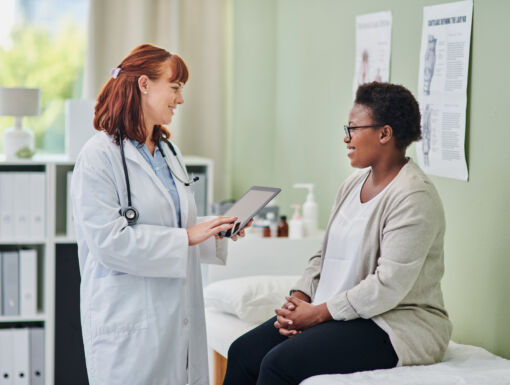
21 Questions I’m Too Embarrassed to Ask My Gynecologist
Visiting the gynecologist is an essential step in taking control of your health and addressing important questions about your body. To make your visit more empowering, here are answers to 21 common questions about women’s health and visits to the OB/GYN.
1. I’m nervous about having to strip down for my visit. What can I do to feel more at ease?
It’s completely normal to feel this way. Gynecologists understand this and aim to make you as comfortable as possible. Many patients opt to first talk with the doctor fully clothed before starting the examination. This can help reduce anxiety, especially if it’s your first visit.
2. I’m on my period. Can I see my OB/GYN, or should I reschedule?
Period-related concerns shouldn’t stop you from seeing your gynecologist. For tests like Pap smears, heavy menstrual bleeding may interfere with results, so it’s ideal to schedule those visits outside your cycle if possible. However, don’t delay your appointment if it’s urgent or if you’re experiencing issues that need immediate attention.
3. Should I shave or wax before my visit?
Not at all. Your doctor is focused on your health, not your grooming choices. Prioritize your comfort and know that gynecologists are accustomed to seeing people in all natural states.
4. What is my vulva supposed to look like? I feel like it must be abnormal.
Vulvas naturally vary in size, shape and appearance, just like people do. Unrealistic beauty standards can sometimes make women feel self-conscious, but differences are usually normal. If you notice sudden changes, growths or abnormalities, bring them to your doctor’s attention.
5. How do I know if my vagina has an odor?
A certain level of natural odor is completely normal, as the vagina is a complex ecosystem. However, experiencing strong, unusual, or persistent odors could indicate an infection or imbalance. Be sure to discuss any concerns with your gynecologist.
6. What is bacterial vaginosis (BV)?
Bacterial vaginosis occurs when the natural bacteria in your vagina become unbalanced. Symptoms may include increased discharge with a fishy odor. While not usually serious, it’s easily treatable with antibiotics. If you suspect you have BV, your doctor can provide proper medication.
7. I have a lot of vaginal discharge. Is daily discharge normal?
Yes, discharge is a regular part of your body’s process of keeping the vagina healthy. Color and consistency can vary throughout your cycle. Changes in smell, unusual colors or itching could signal an infection and should prompt a medical evaluation.
8. I feel some bumps down there. What is normal, and what should concern me?
Tiny bumps, such as hair follicles or Fordyce spots, are usually harmless. However, anything new, enlarging, or painful should be evaluated. Certain bumps could indicate infections like herpes or other conditions requiring treatment.
9. Why is sex painful for me?
Pain during intercourse can stem from many causes, including insufficient lubrication, hormonal changes, endometriosis, pelvic floor issues or psychological factors. Don’t hesitate to bring up this issue. It’s more common than you might think, and there are treatments available.
10. What are the common side effects of birth control pills?
When starting birth control pills, it’s normal to experience temporary side effects such as breakthrough bleeding, nausea or mild headaches. If symptoms persist beyond three months or interfere with daily life, your doctor can help determine whether a different method may be better for you. Note that weight gain as a true side effect is not as common as you may think
11. Is it safe to have sex during my period?
Physiologically, there’s no harm in having sex during menstruation, though individuals with short cycles should remain cautious about unprotected sex to avoid pregnancy. Otherwise, it’s a personal choice based on your comfort level.
12. Is there less risk of getting pregnant if I have sex a few days after my period?
Pregnancy risk varies depending on your cycle length. Tracking ovulation through apps or other methods can help identify your most fertile days. Note that this method isn’t foolproof, so consider other birth control options for full protection. Tracking ovulation or "natural family planning" is not effective in preventing pregnancy for women with irregular cycles
13. Do I need a pelvic exam to get birth control?
No, a pelvic exam isn’t required for most birth control methods unless you’re opting for an IUD or diaphragm. Routine STI screening or a pregnancy test may still be recommended before starting any contraceptive. It is important to note, however, that young women should see a doctor every year for a wellness check-up. If they have not seen an OB/GYN by the time they stop seeing their pediatrician (usually 18-21), it is time to get established. It is also a good idea to see an OB/GYN before going to college, if that hasn’t happened already.
14. How often should a woman get a pelvic exam and a Pap test?
Pelvic exams are generally recommended annually starting at age 21 or earlier if symptoms like pain or irregular bleeding occur. Pap tests, which screen for cervical cancer, should occur every three years for women aged 21-29 and every five years for women over 30 when combined with HPV testing.
15. What are the different types of emergency contraception?
Three primary options exist:
- Progestin-only pills like Plan B, available over the counter.
- Ulipristal, a prescription-only medication.
- Copper IUDs, which must be inserted by a doctor.
Each option works best when used as soon as possible after unprotected intercourse.
16. I’ve been experiencing premenstrual syndrome. How can I tell the difference between normal symptoms and something more serious?
Mild premenstrual symptoms are common, but if your mood or physical discomfort severely disrupts daily life, it could indicate premenstrual dysphoric disorder (PMDD). Talk to your doctor about managing or treating severe symptoms.
17. When should my daughter have her first gynecologic visit, and what will it involve?
The first visit is generally recommended between ages 13-15, focusing on discussion rather than examination. Topics typically include menstrual cycles, puberty, and preventative care. Pelvic exams are seldom necessary unless specific symptoms arise.
18. How often should I be tested for sexually transmitted infections (STIs)?
Annual testing for infections like chlamydia and gonorrhea is advised for sexually active individuals under 25 or those with new or multiple partners. Regular screenings for HIV, syphilis, and trichomonas may also be recommended based on risk factors or concerns.
19. What’s the best way to protect myself from STIs?
Using barrier methods like condoms and maintaining honest communication with your partner about sexual health are vital. Regular testing for you and your partner helps ensure mutual safety and transparency.
20. When should I get my first mammogram?
Routine mammograms typically begin at age 40, but earlier screenings may be necessary for individuals with a family history of breast cancer or high-risk factors. Discuss your unique risk profile with your doctor.
21. Should I be alarmed by low libido?
Low libido happens for various reasons, such as stress, medication, or hormonal fluctuations. A deeper discussion with your doctor can help address underlying causes and create solutions tailored to your needs.
Taking control of your health starts with asking the right questions. By being open and proactive during your gynecologic visits, you empower yourself to make informed decisions and ensure your overall well-being. Remember, no question is too small or too embarrassing. Your doctor is here to help.



